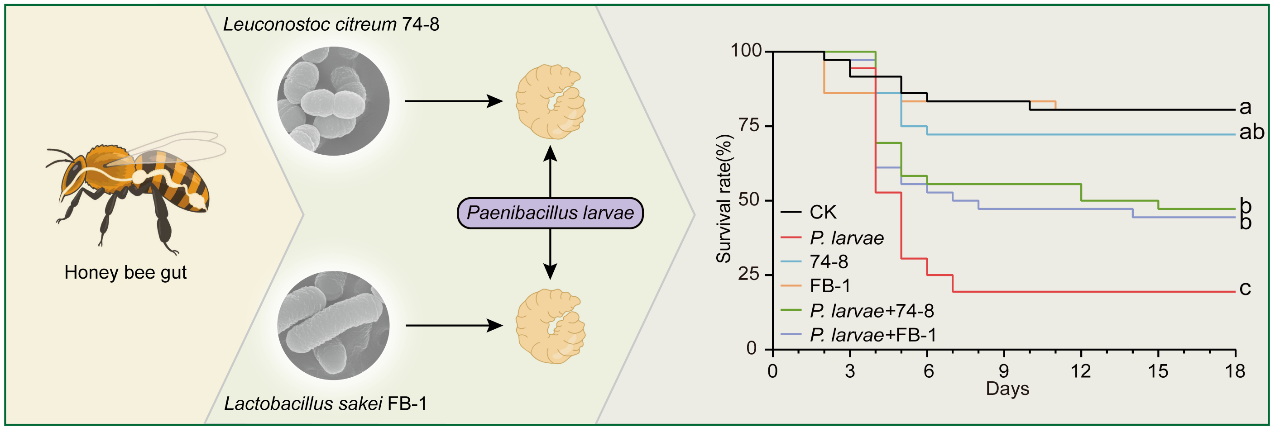Two probiotic strains isolated from the honeybee gut exhibited inhibitory effects against Paenibacillus larvae.
Date:2025-09-22
Source : Institute of Apicultural Research
Recently, the Resource Insect Conservation Team at the Institute of Apicultural Research of the Chinese Academy of Agricultural Sciences has made progressive achievements in the biological control of honeybee diseases. The research team isolated two strains with probiotic functions from the gut of adult Western honeybees (Apis mellifera), which exhibited inhibitory effects against Paenibacillus larvae, the pathogen responsible for American foulbrood (AFB)—a critical disease affecting honeybee larvae. The relevant research findings have been published in Entomologia Generalis.
(Note: Technical terms such as "probiotic functions," "inhibitory effects," and "American foulbrood (AFB)" are consistent with the provided academic context. The Latin name for the Western honeybee (Apis mellifera) is included for precision. The journal name is presented in italics as per academic conventions.)
American foulbrood (AFB) is a bacterial disease of honeybees caused by Paenibacillus larvae. Probiotics play an important role in resistance to pathogens in honeybees. Two strains 74-8 and FB-1 with inhibitory effects on P. larvae were isolated from the whole gut of honeybees, and the multiple probiotic properties and safety in honeybee larvae were tested to assess their potential use in the prevention of AFB. Leuconostoc citreum 74-8 and Latilactobacillus sakei FB-1 could inhibit P. larvae by producing acid in vitro and increased the survival rates of larvae infected with P. larvae by approximate 30 % in vivo. L. citreum 74-8 and L. sakei FB-1 could colonize honeybee larvae and significantly increase the abundance of dominant microorganisms, as well as modulate the transcription of antimicrobial peptides (AMPs) apidaecin, abaecin, hymenoptaecin in honeybee larvae infected with P. larvae. L. citreum 74-8 and L. sakei FB-1 exhibited probiotic characteristics and effectively antagonized AFB through multiple mechanisms. This study will expand our knowledge of the honeybee gut native bacteria against the pathogen and highlight a new strategy for the control of AFB.

Article Link:
https://www.schweizerbart.de/papers/entomologia/detail/prepub/106906/Newly_isolated_b